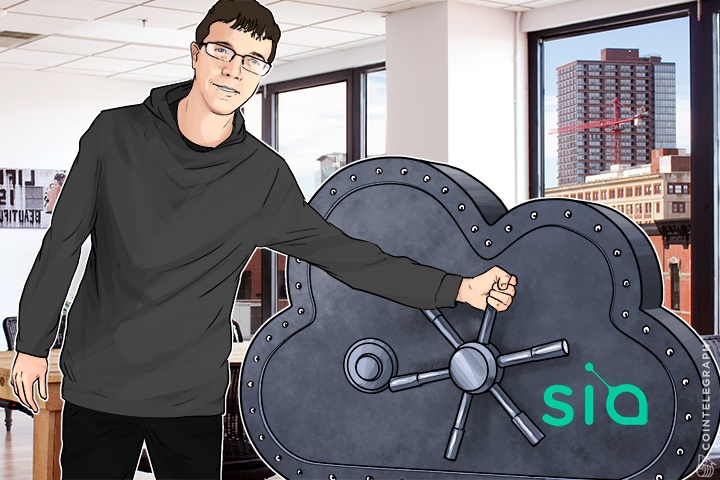With nearly $8 million in market capitalization, the cryptocurrency attempting to take a slice out of the enterprise cloud storage industry largely dominated by huge firms like Amazon (Amazon S3), Google (Google Cloud Storage), Microsoft (Microsoft Azure) and Dropbox (Dropbox for Business), SiaCoin, has begun to break into the mainstream.
Nebulous Labs, the developers behind the project, say although SiaCoin has been flying under the radar for over a year now, it has begun to take off recently, and has been dipping in and out of the top 15 on CoinMarketCap. Cointelegraph spoke to lead developer at Nebulous Labs, David Vorick about how SiaCoin works and its place in the cloud storage market.
What is SiaCoin?
Cointelegraph: How would you explain SiaCoin to someone familiar with blockchain, but not the cloud storage industry?
David Vorick: Sia is a platform for putting data into the cloud while still retaining control. The siacoin is the token used in the smart contracts to pay the hosts. When a file contract is created, the renter and the host both put siacoins into the contract. The host gets the siacoins only if they still have the data when the contract expires.
SiaCoin vs. Traditional Cloud Storage
CT: What are some of the benefits of using SiaCoin over traditional cloud storage services?
DV: Today, when you upload your data to the cloud, it's usually only a single company such as DropBox or Apple that has all of your data, and there for all of the control. Recent trends, database leaks, privacy policy changes have showed repeatedly that corporations cannot be trusted. Sia gives you a way to store your data in the cloud without losing control. When you upload a file to Sia, it is made redundant, encrypted, and then uploaded to a large number of hosts, none of whom are able to manipulate your data, violate your privacy, or prevent you from retrieving the original file. Smart contracts are used to ensure that the hosts do not get paid unless they store your data.
Effect of speculation
CT: Is SiaCoin fundamentally a currency, or is it just a means of tokenising data? Will SiaCoin be subject to speculation, and how does that affect customers’ data?
DV: Siacoin is subject to speculation, and there have historically been large price movements. Because the host adds collateral to file contracts, the host assumes most of the risk of a volatile price. Price increases can only benefit the network, but price drops can impact the host's revenue. Severe price drops, where the price cuts in half or worse, can put files at risk of being dropped by hosts, but even large price drops such as 25% do not put data at risk.
Blockchain competitors
CT: Are you aware of anyone else utilising Blockchain technology in the cloud storage industry? How do you differ from them?
DV: There are a few other teams and platforms working on decentralized cloud storage. Sia is the only platform I'm aware of that holds payment for the host's in escrow until the host has fulfilled the file contract. Sia also has a heavy focus on price efficiency and data speed, and a highly capable engineering team.
“We will be releasing Sia v1.0 on June 28th, which will feature both a graphical client and a stable API with long term support. Sia has been in development since early 2014, has had an operational beta since June 2015, and after more than 12 months of experience, upgrades, and maturity on a fully functioning, fully decentralized beta platform we are excited to be releasing our 1.0. Version 1 features greater stability, greater scale, supports large files (>50GB), and has an API that third party developers can use to add Sia into their own applications.”
